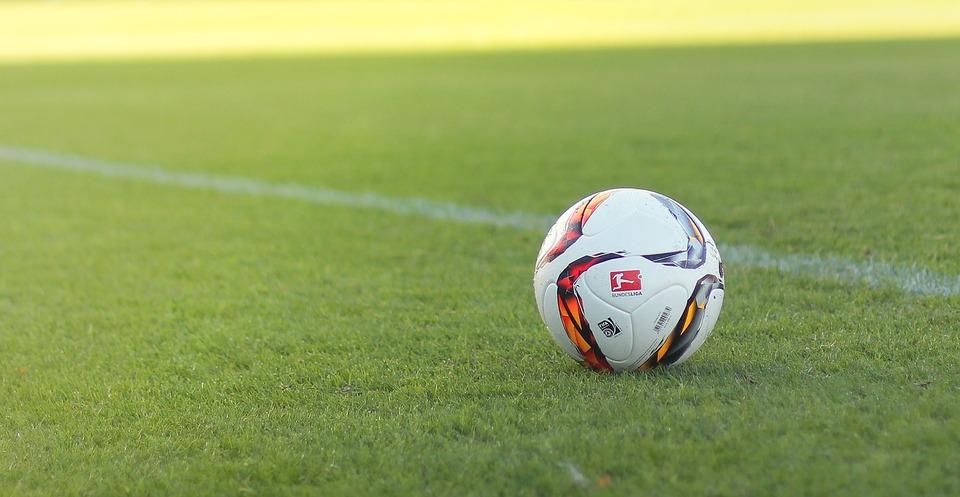Column: Americans are taking over the Bundesliga (And they shouldn’t stop there)”
September 26, 2018
Based on match results alone, it would be fair to call the condition of the United States Men’s National Team, or USMNT, less than ideal. The rehiring of former national team manager Bruce Arena proved regressive in a devastating failure to qualify for the 2018 World Cup following a piteous 2-1 loss to Trinidad and Tobago. The USMNT still could have qualified if not for both Mexico’s 3-2 loss to Honduras and Panama’s controversial 2-1 victory over Costa Rica. Even so, Arena’s squad showed little during their World Cup qualifying matches to demonstrate that they deserve a World Cup appearance, and his brief tenure seemed to solve few of the team’s most pressing issues.
However, the seeds of an American resurgence may have already been planted. German-born Jürgen Klinsmann, manager of the USMNT for five years prior to Bruce Arena’s reinstallment, oversaw a turbulent time in US Men’s Soccer as the standouts from the United States’ impressive 2014 World Cup campaign began age-related declines. Even so, his tenure ought to be remembered for his tendency to push young players into Europe, even favoring those who agreed to European transfers over domestic standouts such as blossoming striker Jordan Morris or the creative midfielder Darlington Nagbe. Perhaps most notable of Klinsmann’s preferred crop was then-Bayern Munich reserve Julian Green, the German-American striker who famously became the USMNT’s youngest World Cup goalscorer with his volley against Belgium in the Round of 16. Though Green’s career hasn’t gone the way many had hoped following his success on soccer’s biggest stage, a new generation of American talent is making its presence known in the Bundesliga, which is Germany’s top league and widely considered one of the four best leagues in Europe.
Of this group, Schalke 04’s Weston McKennie is among the brightest and appears to be poised for a breakout season. A prototypical box to box midfielder, McKennie combines a 6’1” frame with a veteran’s comfort on the ball which he uses to push the ball forward with purposeful dribbles while looking for opportunities to thread dangerous through passes to his forwards making runs behind the defense. This season, McKennie has played the full 90 minutes in both of Schalke’s opening league matches despite only turning 20 this August. The precocious midfielder is in a position to form a long-term partnership at the international stage with the fellow American and equally dynamic Tyler Adams, 19, a budding star in his own right for New York Red Bulls, and consistent playtime in one of Europe’s best leagues is sure to provide him with ample opportunities to improve.
Though much older than McKennie, the 25-year-old John Brooks is similarly poised for a year in which he could firmly establish himself as a dominant force in the Bundesliga. German executives have long been aware of of Brooks’ talent as evidenced by Bayern Munich’s interest following a strong 2010-11 season for Hertha Berlin’s reserves. In 2017, fellow Bundesliga side VfL Wolfsburg paid a transfer fee of 20 million Euros to acquire Brooks’ skills, the highest sum ever paid for an American player, and a sizable amount for a player of any nationality. Blessed with a 6’4” frame, Brooks can matchup physically with the tallest and strongest of strikers, and his long yet elegant strides allow him to close down space against quicker forwards attempting to get past him in the open field. Though not quite a young prospect, Brooks will be in his prime come the next World Cup, and there’s a good chance that by then he’ll have established himself as one of Germany’s best defenders.
Of course, no list of exciting American talent can be complete without the inclusion of Christian Pulisic, the American-born wonder who has accomplished much in his short career – he only turned 20 on the 18th of September, and has been a member of Borussia Dortmund’s squad from the age of 16. Pulisic has become the youngest ever for many things: youngest ever foreigner to score a goal in the Bundesliga, youngest ever to score two goals in a single game in the Bundesliga, and the youngest American to score a goal at the international level. After breaking onto the scene in 2016-17, Pulisic saw an uptick in playtime in 2017-18 where he made 27 league appearances, scoring four and assisting on five while completing 79.4 percent of his passes. Pulisic was the USMNT’s lone goal scorer in their disappointing loss to Trinidad and Tobago as well as one of the few who played with much urgency at all. Certainly, developing a quality partnership with his fellow Americans will be vital for both his and the team’s success. What requires no speculation is Pulisic’s obvious talent, as a catalyst of goal-scoring chances regardless of pitch or teammates, and there’s no question that Borussia Dortmund is eagerly awaiting his return as one of Germany’s greatest sides attempt to make their annual push for the league title.
The US is no doubt transitioning to a new generation, but the rich history of American talent playing in Germany extends far beyond even the first of Christian Pulisic’s electrifying performances with the likes of Michael Bradley, Landon Donovan and Jermaine Jones spending time in the Bundesliga. Such is the dilemma for the US Soccer Federation: what is the best way to develop young American talent while maximizing the brand? Surely it would be best for the strength of the MLS if burgeoning talent remained in the domestic league, but with the likes of Pulisic, McKennie, and Paris St. Germain’s Tim Weah developing their skills against world-class talent overseas, it’s difficult to justify shackling the stars of the future by suggesting that they remain at home in a league whose financial regulations suggest perpetual mediocrity. Klinsmann’s tenure was certainly tumultuous and he left plenty of room for improvement when it came to the politicking necessary in a position like head coach of the USMNT, but he was right in suggesting that the next generation of American soccer is dependent on young talent breaking into the first team’s of Europe’s best sides. However, if this Bundesliga group is any indication, there may be hope yet.


















